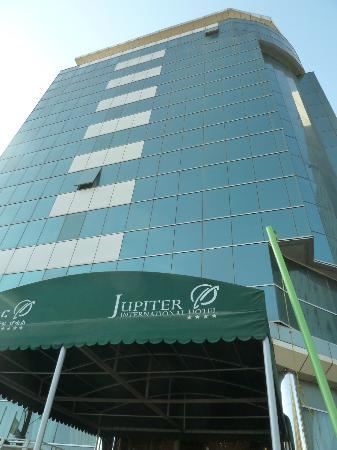Ethiopia’s Booming Hotel Industry

The Sheraton Hotel is doing another good day of business on a Monday morning. The hotel, run by Sheikh Mohammed Ali Al-Amoudi, is Ethiopia’s most recognized hotel. It fills with business travelers from London and diplomats from all over Africa. It offers similar services and accommodations expected from any major hotel in America or Europe. For those who find the prices of the bigger international brands too expensive, Jupiter International Hotels, run by a young Ethiopian expat Benyam Bisrat, offers a quality local alternative.
The central partsâ€â€Kazanchis and Boleâ€â€of Addis Ababa resemble a construction site. New malls and hotels are being erected throughout these areas. These new constructions are mostly locally funded. Jupiter Hotels, as one of those locally funded constructions, has only been running for 5 years. In that time, the company has boosted occupancy rates above 80 percent to match international brands in the market.
Until recently, schmoozing with businessmen of all stripes and African diplomats involved sitting by the bar in the Hilton or lingering around the Sheraton lounge area. During the last African Union meeting, the lobby of the Jupiter Hotel in Kazanchis jammed softly with local Ethiopian jazz crowded out by Africa’s numerous local languages and the usual assortment of romance languages spoken on the continent.
This type of growth is usually the result of growing demand and stalled supply. But the supply of hotel beds in Addis has tripled in the last three years to around 6,000 hotel beds. Competition in this market could potentially push the number over 10,000 hotel beds in the next few years. Jupiter International Hotels will actively expand during this time to more than 1,000 hotel beds to capture approximately ten percent of the market, says Mr. Bisrat, who is also vice president of the Hotel Association of Ethiopia. International brands, including the Marriott, will also help the local hotel industry to reach that number.
Hotel groups are expanding in this capital because the amount of diplomats and corporate clients are growing. Yearly tourism, at approximately 500,000 tourists in Ethiopia, still has a ways to go before it matches other emerging African economies. The Ministry of Culture and Tourism has stated its aspirations to make Ethiopia a top five tourist destination in Africa by 2020.
During this rapid growth phase, quality service-oriented business will win out at the end of the day, say Mr. Bisrat, or customers will walk out. He believes Jupiter International Hotels is positioned as top competitor in this space, especially as it plans to develop a value hotel chain. A hot shower, good mattress, and strong internet goes a long way to make a quality value hotel. But Jupiter International Hotels plans to also add a yoga studio, art gallery, and technological add-ons, including iPod docking stations and quality data and voice streaming capabilities in the rooms.
So many foreigners are coming now and more and more are not Ethiopian Diaspora, says Dawit, a local Ethiopian tourist operator. A sense of change has descended upon the country. Gone are filmmakers for aid videos on famine. Rather conference facilities and lobbies bustle with the growing presence of investors and government officials. Hotel groups, says Mr. Bisrat, still have a long way to go to meet the needs of a growing business and diplomatic hub. As Ethiopian Airlines expands its routes to meet the geographically diversifying clientele of the Ethiopia, expect the hotel industry to do the same.
Source:Ventures Africa



